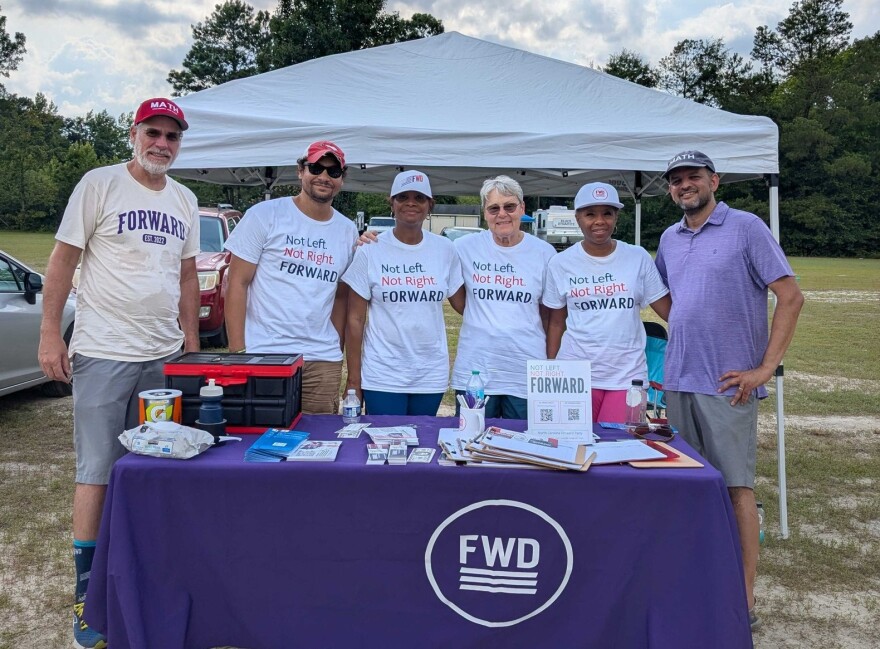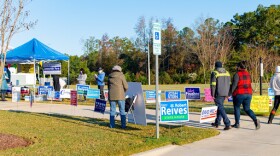North Carolina’s ballot access laws create an uphill battle for third parties seeking to get their candidates on the ballot, requiring more than 14,000 registered voters to sign their petition for access.
That barrier hasn’t stopped them from trying to offer an alternative to the Republican and Democratic parties. Five of those parties were on the ballot in last year’s election, and six have started the petition process for the 2026 election cycle, according to State Board of Elections records.
But only one party so far has made any serious progress toward getting 14,000 signatures. That’s the North Carolina Forward Party, which has amassed 2,200 signatures so far.
The Forward Party’s chair, Patrick Newton, stopped by the WUNC Politics Podcast to talk about the centrist party founded at the national level by former New Jersey Gov. Christine Todd Whitman and former Democratic presidential candidate Andrew Yang.
This conversation has been lightly edited for brevity and clarity.
What does the Forward Party's platform look like? What issues are you focusing on?
"All the kitchen table issues, as they love to call them, that everybody's always talking about. But for us, it's really more about the process. So if you go to our website, you're not going to see a litany of written positions — how many weeks on abortion, or specific details like that, and it's not because we're trying to avoid any specifics.
"It's actually a process that we call the Forward Formula. The goal here using the Forward Formula to identify policy that gets at least 68% or higher of approval and buy-in from the constituents. In our current system, it's really 50% plus one, and then you win, you do whatever you want, and the rest of us are completely disenfranchised."
How does the internal structure and operation of the Forward Party differ from what you see with the two major parties at the state level?
"We not only are OK with diversity of thought, it's in our DNA. Getting a bunch of people together with homogenous backgrounds and ideas to all agree with each other, I don't think accomplishes anything. By looking at this from all different angles, with all different people from all different perspectives, that's when we can truly engage and get better results."
Forming a new political party is a lot of work. What made you want to take this on?
"The legislature has demanded that we take this on. There are 50 different sets of rules across our 50 different great states on how to achieve this. Unfortunately, North Carolina is certainly one of the more challenging.
"I'm not sure if the bar should be set quite as high as it is. One thing people are not aware of is, in my knowledge, I don't think anyone's ever done this in a true all-volunteer effort. At some point you've got to write checks and hire vendors to go out. One of the main focuses of our efforts right now is energizing volunteers to go out and knock on doors and gather signatures, but also to write checks and donate to allow us to hire third parties to do the work."






